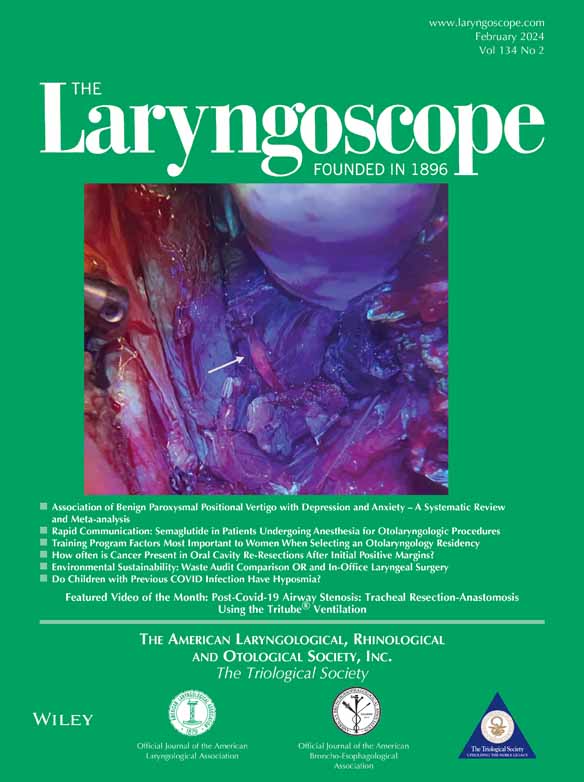Training for Awake, Office-Based Laryngeal Procedures—The Laryngology Fellow's Perspective
The authors have no funding, financial relationships, or conflicts of interest to disclose.
This research manuscript has been accepted for podium presentation at the following meetings: (1) 77th Annual Meeting of the Canadian Society of Otolaryngology-Head and Neck Surgery, September 9th, 2023, in Toronto, ON, Canada. (2) Fall Voice Conference, October 19th–21st, 2023 in Washington, DC, USA.
Abstract
Objective
The aim was to explore recent laryngology graduates' perspectives on their experience, competency, and challenges learning office-based procedures during fellowship training in the United States and Canada.
Methods
Anonymous 22-item questionnaire survey was distributed electronically to fellowship-trained laryngologists having completed fellowship within past 5 years.
Results
Ninety fellowship-trained laryngologists between 2018 and 2022 were surveyed. Response rate was 48.9% (n = 44), 1 declined participation, with 20 different fellowship programs represented. Fellows were frequently provided the opportunity to act as primary surgeon for most procedures, except for laryngeal botulinum toxin injection, diagnostic laryngeal electromyography, trans-nasal esophagoscopy, secondary tracheoesophageal puncture, and high-resolution pharyngeal manometry. A majority reported high (n = 27, 62.8%) or moderate (n = 12, 27.9%) confidence with vocal fold injection augmentation. Various techniques were taught: transoral (74.4%), cricothyroid (74.4%), thyrohyoid (69.8%), transcartilagenous (14.0%), and catheter-needle (25.6%). Numerous statistically significant associations with independent procedure involvement and competence were identified. Laryngeal botulinum toxin injection was a procedure performed with high frequency but low volume of independent fellow involvement, and the procedure with which fellows reported wanting more practice learning. Most common training barriers included patient being awake, patient consenting to trainee performing the procedure, and the technical challenge/complexity of the procedure. Teaching methods/tools largely focused on informal debriefing (97.3%) and case by case troubleshooting (81.1%).
Conclusions
Laryngology fellows are well trained with favorable perceived levels of competence for numerous office-based procedures, particularly vocal fold injection augmentation. Procedures for which fellows reported a low level of independent participation trended towards lower perceived competency.
Level of Evidence
5 Laryngoscope, 134:873–881, 2024




